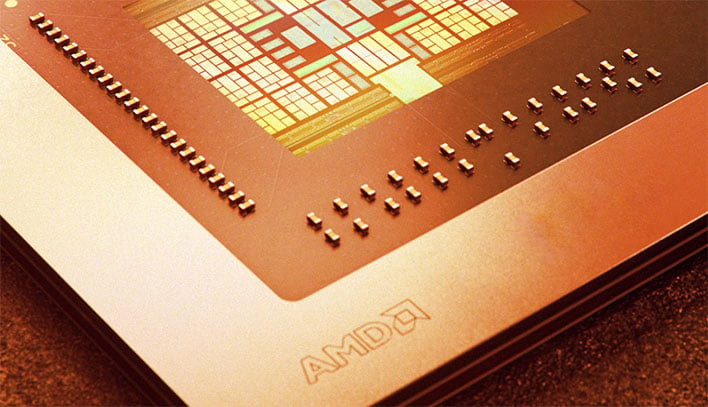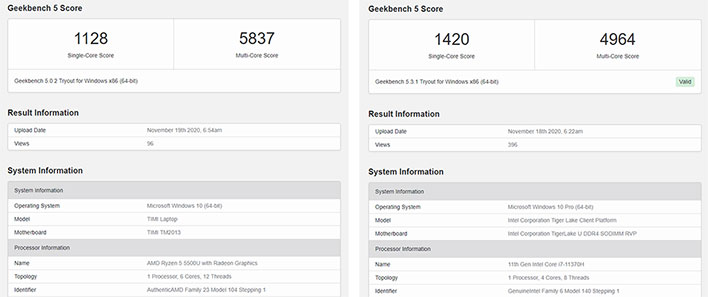AMD Ryzen 5 5500U Lucienne And Intel Core i7-11370H Tiger Lake-H CPUs Hit The Benchmark Circuit

Do you see that off in the distance? That's right, it's a series of leaked benchmark results that stretches as far as the eye can see, almost indefinitely. If there is a new CPU or GPU on the horizon, you can bet there will be purported benchmark results before it actually launches. And so it goes with both an AMD Ryzen 5 5500U and Intel Core i7-11370H silicon, both of which have found their way to the Geekbench database.
Let's first talk about the AMD part. If past leaks are accurate, the Ryzen 5 5500U will actually be based on AMD's previous generation Zen 2 architecture, and not Zen 3. Adding to the confusion, it is said AMD will split its next-gen APUs into Zen 2 (Lucienne) and Zen 3 (Cezanne) models, all labeled as Ryzen 5000U series. Here's a look...
This would be an interesting scenario if it plays out that way. As for the Geekbench entry, it shows the same specifications for the Ryzen 5 5500U as the above chart, but of course does not identify the underlying architecture. So that question will have to wait.
It is a 6-core/12-thread CPU with a 2.1GHz base clock and 4GHz boost clock. The Ryzen 5 5500U also features 8MB of L3 cache. On the graphics side, it wields 7 CUs (Vega) clocked at 1.8GHz.
Meanwhile, Intel is readying its Tiger Lake-H processors for high performance laptops. These will be available with up to 8 cores and 16 threads, paired with Xe graphics. The chip that found its way to Geekbench, however, is the 11 generation Core i7-11370H with 4 cores and 8 threads clocked at 3.3GHz (base) to 4.8GHz (boost).
Here is how they performed...
The Ryzen 5 5500U is on the left and the Core i7-11370H is on the right. If we are comparing them directly, the single-core scores are the more relevant numbers, since these do not have the same number of cores and threads. And in that regard, the Core i7-11370H scored nearly 26 percent higher. Of course, Intel's chip also has a 57 percent higher base clock and a 20 percent higher boost clock, so what we're looking at is single-threaded performance, and not an IPC (instructions per clock) comparison.
In the multi-core test, the AMD chip jumped out ahead as we would expect, even despite the clockspeed disadvantage. With two additional cores and four extra threads, it outpaced the Intel chip by around 17.6 percent.
I'm only comparing these numbers because they are available. Otherwise, bear in mind that a quad-core chip from one company and a hexa-core processor from another will likely target different buyers and price points.



